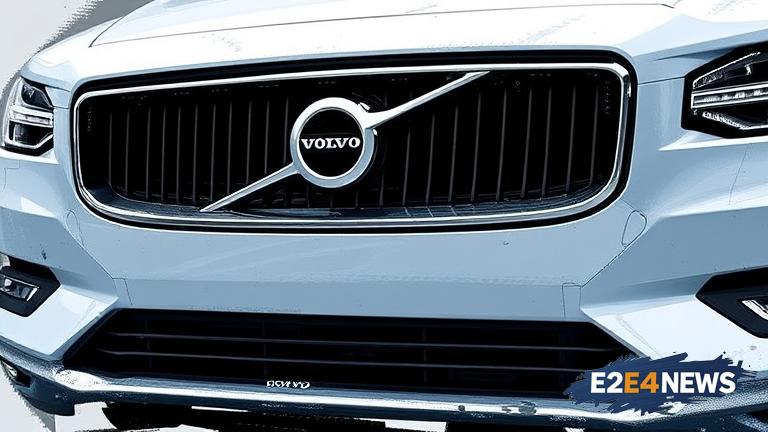Volvo, the Swedish luxury car brand, has been experiencing a significant decline in sales, with recent reports indicating a substantial drop in demand for its vehicles. This downward trend has raised concerns among industry experts and enthusiasts alike, who are wondering if the brand is on the verge of a death spiral. Despite its rich history and reputation for producing high-quality, safe, and stylish cars, Volvo seems to be struggling to keep up with the changing market trends and consumer preferences. The brand’s sales have been declining steadily over the past few years, with the latest figures showing a significant drop in sales across various markets. This decline has been attributed to a combination of factors, including increased competition from other luxury car brands, a lack of exciting new models, and a shift in consumer preferences towards more affordable and environmentally friendly options. Furthermore, the COVID-19 pandemic has had a devastating impact on the global automotive industry, with many manufacturers, including Volvo, facing significant challenges in terms of production, supply chain, and sales. The brand’s reliance on traditional combustion engine technology has also been cited as a major factor contributing to its decline, as consumers increasingly opt for electric and hybrid vehicles. In response to these challenges, Volvo has announced plans to transition its entire lineup to electric and hybrid powertrains, with the goal of becoming a fully electric brand by 2030. However, this transition is expected to be a complex and costly process, and it remains to be seen whether the brand can successfully navigate this shift and regain its footing in the market. Meanwhile, Volvo’s parent company, Geely, has been working to revamp the brand’s image and product lineup, with a focus on producing more exciting and innovative vehicles. Despite these efforts, the brand’s sales continue to decline, and it remains to be seen whether Volvo can reverse this trend and regain its position as a leading luxury car brand. The decline of Volvo’s sales has significant implications for the brand’s employees, dealerships, and suppliers, who are all facing an uncertain future. The brand’s struggles also raise questions about the future of the luxury car market as a whole, and whether traditional brands like Volvo can adapt to changing consumer preferences and technological advancements. In addition to its sales decline, Volvo is also facing increased competition from new entrants in the luxury car market, including Tesla and other electric vehicle manufacturers. These new players are disrupting the traditional luxury car market and forcing established brands like Volvo to rethink their strategies and product offerings. As the automotive industry continues to evolve, it remains to be seen whether Volvo can successfully navigate these challenges and emerge as a strong and competitive brand. The brand’s future will depend on its ability to innovate, adapt to changing market trends, and produce vehicles that meet the evolving needs and preferences of consumers. With the rise of electric and autonomous vehicles, Volvo will need to invest heavily in research and development to stay ahead of the curve. The brand’s commitment to safety, quality, and sustainability will also be crucial in attracting and retaining customers in a rapidly changing market. Ultimately, the fate of Volvo will depend on its ability to balance tradition with innovation, and to produce vehicles that are both desirable and relevant to modern consumers. As the brand navigates this critical period, it will be important for it to stay focused on its core values and to prioritize the needs and preferences of its customers. By doing so, Volvo can hope to reverse its decline and emerge as a strong and competitive player in the luxury car market. The brand’s success will also depend on its ability to form strategic partnerships and collaborations, both within and outside the automotive industry. By working with other companies and organizations, Volvo can leverage new technologies, expertise, and resources to drive innovation and growth. As the brand looks to the future, it will be important for it to stay agile, adaptable, and responsive to changing market trends and consumer preferences. By doing so, Volvo can hope to regain its position as a leading luxury car brand and to thrive in a rapidly evolving industry.





